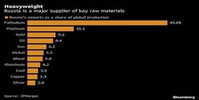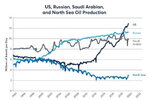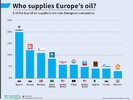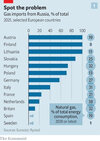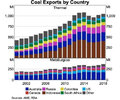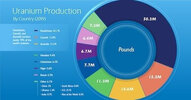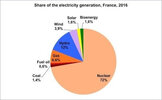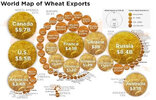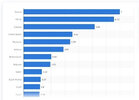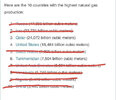You have got to be kidding me right?Sounds like a lot of conspiracy theories in that statement
The situation is very dangerous and delicate, it could escalate to a multi-nation war with extreme and severe consequences which include nuclear retaliation from Russia.
The US and NATO can't offer air defense or boots on the ground to help the Ukrainian people, because Putin has warned every nation that he is ready to use his nuclear arsenal.
Some people are trying connect dots that aren't there, and find similarities with US incursions into Iraq and Afghanistan to the current Russian invasion of the Ukraine. The USA never claimed that Iraq and Afghanistan was the territory of the USA, unlike Putin's Russia which has claimed that the Ukraine is Russian territory and its democratically elected government are Nazis waging genocide on its people, with no evidence other than all the Ukrainian people willing to fight for their neighbours and land.
Two world wars began in Europe, the people of the world do not want another. After the cold war ended Western governments opened their business doors to Russia, creating immense wealth for Russia and its people. Instead of using most of the new found wealth to improve the the lives of Russian citizens and modernise the country, the powerful have instead made a few super wealthy and the armed forces expand.
Countries like Germany may now be heading towards a recession because they put all their eggs in the Russian energy basket. Other countries are also in the same boat and on top of an energy crises is the added stress of food shortage from the loss of Russian and Ukraine crops, transport logistics, commercial flights being re-routed, the possibility of 10 million Ukrainian refugees, toxic pollution from war on their borders, death and destruction and fear of a world war.
Only conspiracy theorists and movies see western governments being "sneaky" and pushing countries to world wars.
Fact: For more than three decades, NATO has consistently worked to build a cooperative relationship with Russia.NATO began reaching out, offering dialogue in place of confrontation, at the London NATO Summit of July 1990 (declaration here). In the following years, the Alliance promoted dialogue and cooperation by creating the Partnership for Peace (PfP) and the Euro-Atlantic Partnership Council (EAPC), open to the whole of Europe, including Russia.In 1997, NATO and Russia signed the Founding Act on Mutual Relations, Cooperation and Security, creating the NATO Russia Permanent Joint Council. In 2002, this was upgraded, creating the NATO-Russia Council (NRC) (The Founding Act can be read here)We set out to build a good relationship with Russia. We worked together on issues ranging from counter-narcotics and counter-terrorism to submarine rescue and civil emergency planning.However, in March 2014, in response to Russia's aggressive actions against Ukraine, NATO suspended practical cooperation with Russia. At the same time, NATO has kept channels for communication with Russia open. The NATO-Russia Council remains an important platform for dialogue. That is why NATO Secretary General Jens Stoltenberg has invited all members of the NATO-Russia Council to a series of meetings to improve security in Europe.
Is this a serious post?
We went into Iraq for less.
As for government overthrows or support of violent regimes, well we have plenty:
Afghanistan, Albania, Argentina, Brazil, Cambodia, China and lets not forget the sht puddle that was Cuba. And that list is only up to D so far.
Russia was making accusations against Obama long before this blew up.
WASHINGTON (Reuters) - A conversation between a State Department official and the U.S. ambassador to Ukraine that was posted on YouTube revealed an embarrassing exchange on U.S. strategy for a political transition in that country, including a crude American swipe at the European Union.
The leaked conversation appeared certain to embarrass the United States and seemed designed to bolster charges - from Russia, among others - that the Ukrainian opposition is being manipulated by Washington, which President Barack Obama's administration strenuously disputes.
This was 2014.
We also had McCain and Senator Chris Murphy rock up to the protest and speak. Back in 2014. You also had John McCain have a dinner with the likes of Svoboda (they captured about 10% of the vote and were growing).
Maybe learn a bit about Svoboda roots and how it to had influence in how all this went.
His one pre 2012 article (tried to make all articles pre 2015)

Svoboda: The rise of Ukraine's ultra-nationalists
The ultra-nationalist Svoboda party was a big winner in Ukraine's recent election. How radical is it?
www.google.com.au
So maybe back off your "Nazi conspiracy" when you think it's entirely a Russian disinformation campaign. Because that's not the only truth in a propaganda war.
We had roughly $500 million pour into the region from I think 2009 to possibly 2014 from the US. Then weapons.
And all thus isn't even into the why it all began in the first place. Do you honestly think the US, Russia or Europe would be involved if it wasn't strategically advantageous. It's nothing to do with freedom and its not a conspiracy theory.
There are so many talking points but I don't have the time. But maybe ready deep into the situation rather then believe whatever idiots tell you.



